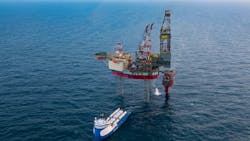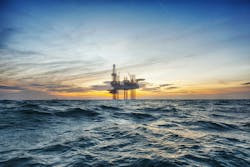North Sea Project Greensand confirms feasibility of safe CO2 storage
This was the world’s first project to demonstrate that captured CO2 can be transported across maritime borders and stored offshore.
Lead partner INEOS has applied for approval on behalf of license partners Harbour Energy and state-owned Nordsøfonden for Denmark's first large-scale CO2 storage facility.
The main goals are to start CO2 storage in the North Sea by the end of 2025 or early in 2026 at an initial rate of up to 400,000 metric tons/year, rising to up to 8 MMmt/year from 2030.

